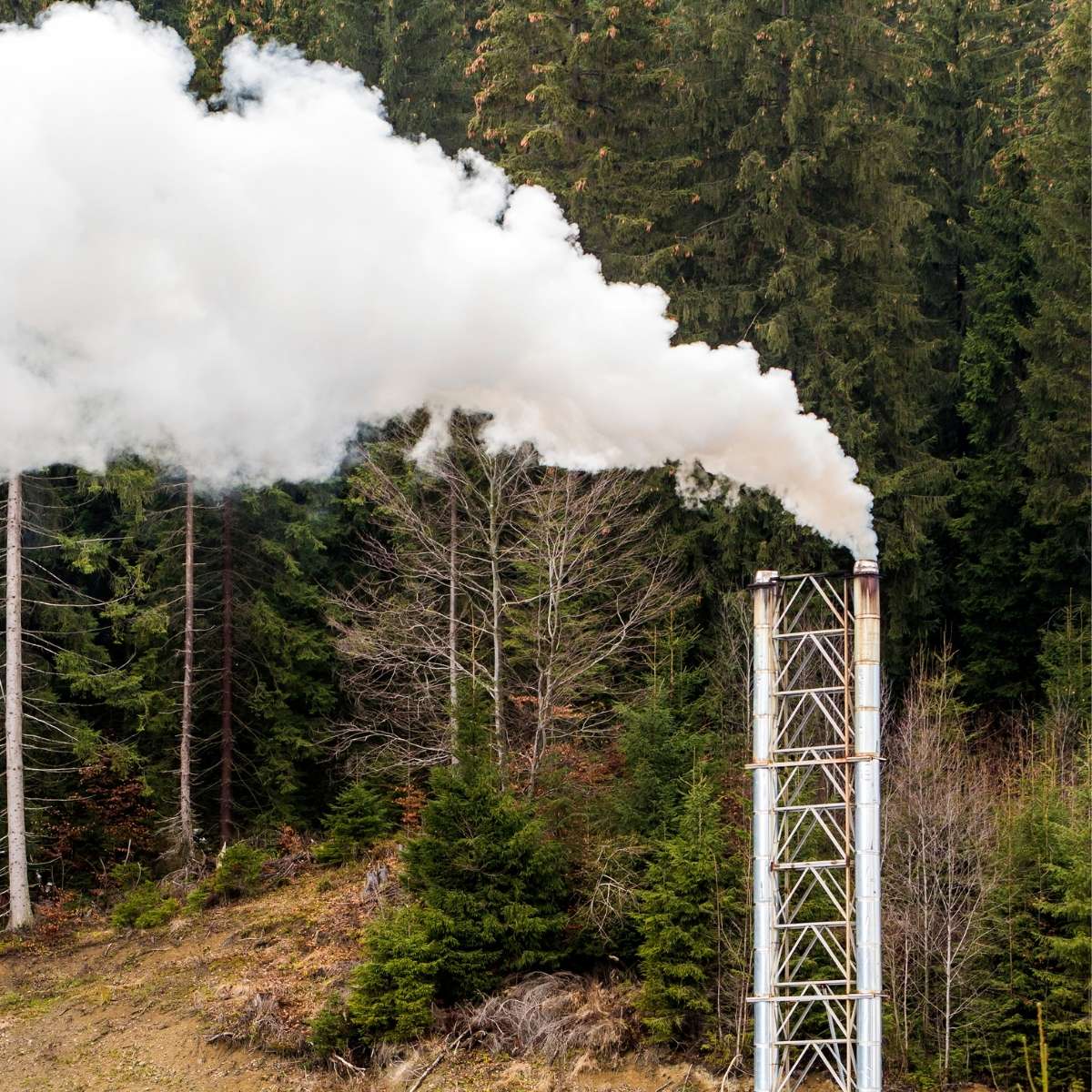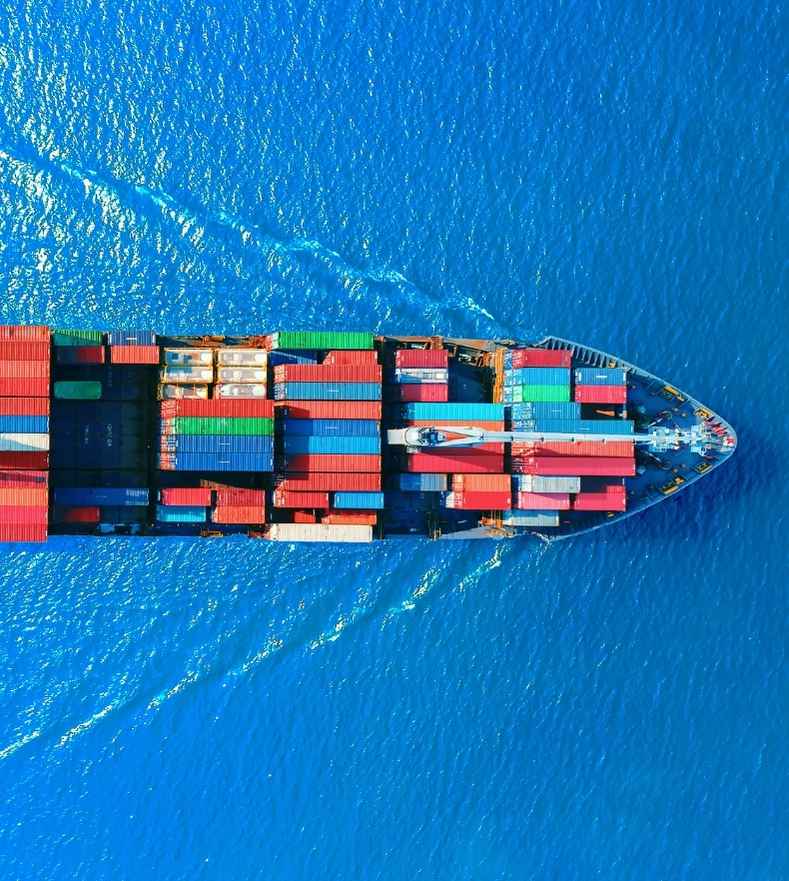-
Financial administration & outsourcing
Entrepreneurs who outsource financial administration reduce the number of administrative tasks and consequently have more time and space to focus on growth.
-
Financial insight
We help you turn financial data into valuable insights that support you in making well-founded decisions. In-depth analyses of your financial situation will help give you a better idea of where you stand and where the opportunities for growth lie, both in the short and long term.
-
Financial compliance
We make sure your company complies with financial legislation and regulations, with correct financial statements, tax reports and other obligations. From our global network, we support you in managing local and international tax risks.

-
Impact House by Grant Thornton
Building sustainability and social impact. That sounds good. But how do you go about it in the complex world of stakeholders, regulations and frameworks and changing demands from clients and society? How do you deal with important issues such as climate change and biodiversity loss?
-
Business risk services
Minimize risk, maximize predictability, and execution Good insights help you look further ahead and adapt faster. Whether you require outsourced or co-procured internal audit services and expertise to address a specific technology, cyber or regulatory challenge, we provide a turnkey and reliable solution.
-
Cyber risk services
What should I be doing first if my data has been kidnapped? Have I taken the right precautions for protecting my data or am I putting too much effort into just one of the risks? And how do I quickly detect intruders on my network? Good questions! We help you to answer these questions.
-
Deal advisory
What will the net proceeds be after the sale? How do I optimise the selling price of my business or the price of one of my business activities?
-
Forensic & integrity services
Do you require a fact finding investigation to help assess irregularities? Is it necessary to ascertain facts for litigation purposes?
-
Valuations
Independent and objective valuations tailored for mergers, acquisitions, and legal matters.

-
Auditing of annual accounts
You are answerable to others, such as shareholders and other stakeholders, with regard to your financial affairs. Financial information must therefore be reliable. What is more, you want to know how far you are progressing towards achieving your goals and what risks may apply.
-
IFRS services
Financial reporting in accordance with IFRS is a complex matter. Nowadays, an increasing number of international companies are becoming aware of the rules. But how do you apply them in practice?
-
ISAE & SOC Reporting
Our ISAE & SOC Reporting services provide independent and objective reports on the design, implementation and operational effectiveness of controls at service organizations.

-
International corporate tax
The Netherlands’ tax regime is highly dynamic. Rules and the administrative courts raise new challenges in fiscal considerations on a nearly daily basis, both nationally and internationally.
-
VAT advice
VAT is an exceptionally thorny issue, especially in major national and international activities. Filing cross-border returns, registering or making payments requires specialised knowledge. It is crucial to keep that knowledge up-to-date in order to respond to the dynamics of national and international legislation and regulation.
-
Customs
Importing/exporting goods to or from the European Union involves navigating complicated customs formalities. Failure to comply with these requirements usually results in delays. In addition, an excessively high rate of taxation or customs valuation for imports can cost you money.
-
Human Capital Services
Do your employees determine the success and growth of your organisation? And are you in need of specialists which you can ask your Human Resources (HR) related questions? Human Resources (HR) related questions? Our HR specialists will assist you in the areas of personnel and payroll administration, labour law and taxation relating to your personnel. We provide you with high-quality personnel and payroll administration, good HR guidance and the right (international) advice as standard. All this, of course, with a focus on the human dimension.
-
Innovation & grants
Anyone who runs their own business sets themselves apart from the rest. Anyone who dares stick their neck out distinguishes themselves even more. That can be rather lucrative.
-
Tax technology
Driven by tax technology, we help you with your (most important) tax risks. Identify and manage your risks and become in control!
-
Transfer pricing
The increased attention for transfer pricing places greater demands on the internal organisation and on reporting.
-
Sustainable tax
In this rapidly changing world, it is increasingly important to consider environmental impact (in accordance with ESG), instead of limiting considerations to financial incentives. Multinational companies should review and potentially reconsider their tax strategy due to the constantly evolving social standards
-
Pillar Two
On 1 January 2024 the European Union will introduce a new tax law named “Pillar Two”. These new regulations will be applicable to groups with a turnover of more than EUR 750 million.
-
Cryptocurrency and digital assets
In the past decade, the utilization of blockchain and its adoption of a distributed ledger have proven their capacity to revolutionize the financial sector, inspiring numerous initiatives from businesses and entrepreneurs.
-
Streamlined Global Compliance
Large corporations with a presence in multiple jurisdictions face a number of compliance challenges. Not least of these are the varied and complex reporting and compliance requirements imposed by different countries. To overcome these challenges, Grant Thornton provides a solution to streamline the global compliance process by centralizing the delivery approach.
-
Corporate Law
From the general terms and conditions to the legal strategy, these matters need to be watertight. This provides assurance, and therefore peace of mind and room for growth. We will be pro-active and pragmatic in thinking along with you. We always like to look ahead and go the extra mile.
-
Employment Law
What obligations do you have with an employee on sick leave? How do you go about a reorganisation? As an entrepreneur, you want clear answers and practical solutions to your employment law questions. At Grant Thornton, we are there for you with clear advice, from contracts and terms of employment to complex matters such as dismissal or reorganisation.
-
Sustainable legal
At Grant Thornton, we help companies integrate sustainability into their business operations, with sustainable legal at the heart of our approach. We advise on ESG (Environmental, Social, Governance) legislation, and help draft sustainable contracts, implement HR policies, and carry out ESG due diligence in M&A transactions (Mergers and Acquisitions).
-
Maritime sector
How can you continue to be a global leader? The Netherlands depends on innovation. It is our high-quality knowledge which leads the maritime sector to be of world class.

Introduction to CBAM
Are you prepared for the EU's new Carbon Border Adjustment Mechanism (CBAM) regulation? This mechanism is an EU measure introduced to prevent “carbon leakage”, which happens when companies move their production to countries outside the EU with less stringent environmental regulations. The EU achieves this by imposing a carbon tax on certain imported products, ensuring fair competition and encouraging businesses to reduce their carbon footprint. This regulation requires you to track and report the carbon dioxide impact of specific goods to the EU.
Are you interested in CBAM and do you want to learn more about it? Request our CBAM whitepaper.
Companies in scope
Since October 2023, EU importers must report the carbon emissions of certain goods imported from outside the EU. The following goods are covered by CBAM: cement, iron, steel, aluminum, fertilizer, electricity and hydrogen. Anyone who imports CBAM goods with a value above € 150 per shipment into the European Union from October 2023, will be required to report how much carbon emissions were emitted in the production of those goods, with full regulations coming into effect in 2026.
All authorised CBAM declarants are required to submit their annual CBAM declaration, detailing the carbon emissions of the imported goods, in the CBAM register after the end of the calendar year.
When to start implementing CBAM?
From 1 October 2023 until 31 December 2026, CBAM will be in a transitional phase. During this period, importers must report their carbon footprint, though no direct costs are yet associated with the reporting. This gives companies the opportunity to prepare for the full implementation of CBAM, scheduled for 1 January 2026. Failure to comply could lead to severe penalties.
Timeline
Submission of first CBAM report
'Authorised CBAM declarant'
Required for importers to apply for this status.
Start of full CBAM year
CBAM authorisation required prior to import
CBAM compliance Quick Scan
Our Quick Scan provides you with a fast and thorough evaluation of your CBAM obligations, identifying any potential risks and offering practical next steps to ensure compliance, consisting of the following:
- Implementation
- Data review
- Product range analysis
Deliverables
- A customized compliance framework to manage CBAM effectively.
- A data analysis report that highlights areas for improvement and provides actionable insights.
- A clear product range assessment, ensuring you're focused on the right goods and saving you from unnecessary efforts.
We identify which of your imported goods are affected, analyze your product range, and provide a clear action plan. Our Quick Scan provides quick insights into your CBAM obligations, helping you mitigate risks and ensure early compliance. Contact us today to schedule your Quick Scan.
CBAM compliance advisory
We provide expert guidance and detailed support throughout your CBAM reporting process, ensuring your data is accurate, complete, and compliant with EU regulations, consisting of the following:
- CBAM reporting assistance
- Quality control
- Compliance backlog check
Deliverables
- Seamless data preparation with professional guidance at every step.
- A comprehensive quality control report, ensuring your data is precise and reliable.
- A compliance readiness check, highlighting any missing reports or gaps in supplier information, so you can fix issues before they escalate.
Our CBAM Compliance Advisory provides in-depth support for preparing and submitting accurate CBAM reports. We guide you through the reporting process, verify the quality of your data, and ensure all required details are properly documented. This service guarantees that your reports are complete and compliant, reducing the risk of penalties.
CBAM ongoing assistance
For companies seeking end-to-end support, our comprehensive service ensures that your CBAM compliance is not only managed but optimized. We provide ongoing assistance, strategic advice, and continuous improvements to keep your reporting streamlined and cost-efficient, consisting of the following:
- Ongoing support
- Initial and ongoing reporting
- Strategic advisory
- Training
- Assisting in the communication with Local Authorities
Deliverables
- Ongoing compliance assessment and ongoing reporting
- Strategic advisory report
- Training sessions tailored to your team’s needs
- Ongoing support in relation to communications with local authorities.
Our CBAM Comprehensive Assistance provides ongoing, full-service support to ensure you stay compliant with all CBAM regulations. From initial assessments to continuous reporting, we work with you to optimize your supply chain, minimize costs, and develop strategic solutions for long-term compliance. We also offer training to your teams to ensure that compliance becomes a seamless part of your operations.
Further assistance
Communication with authorities:
Providing support in communication with local authorities for tasks such as registering EORI numbers, eHerkenning, reclassifying certain goods, correcting product codes and submitting BTI requests (non-exhaustive).
Ongoing support is crucial to ensure your company remains compliant with CBAM as such regulations typically evolve over time. We offer tailored guidance to keep your business on track.

During the transition phase, CBAM requires only carbon footprint reporting without associated (direct) costs. Full implementation starts from 2026, introducing financial obligations. Ensure you are ready with our support.













